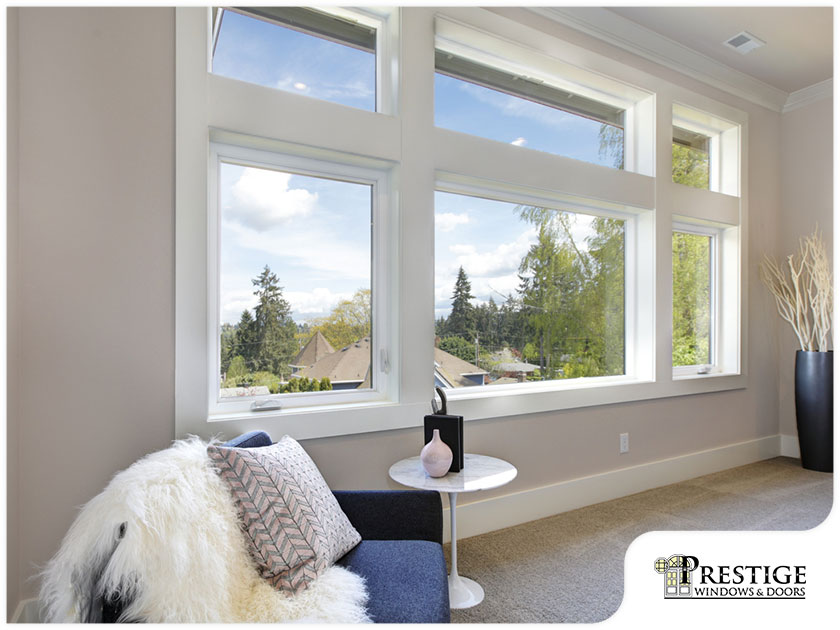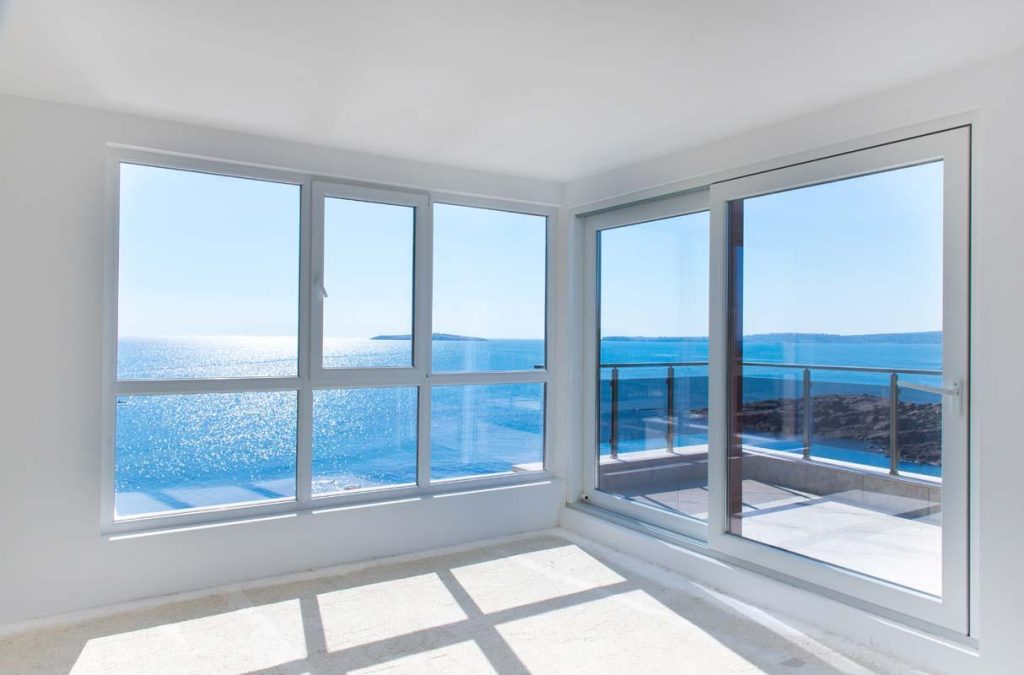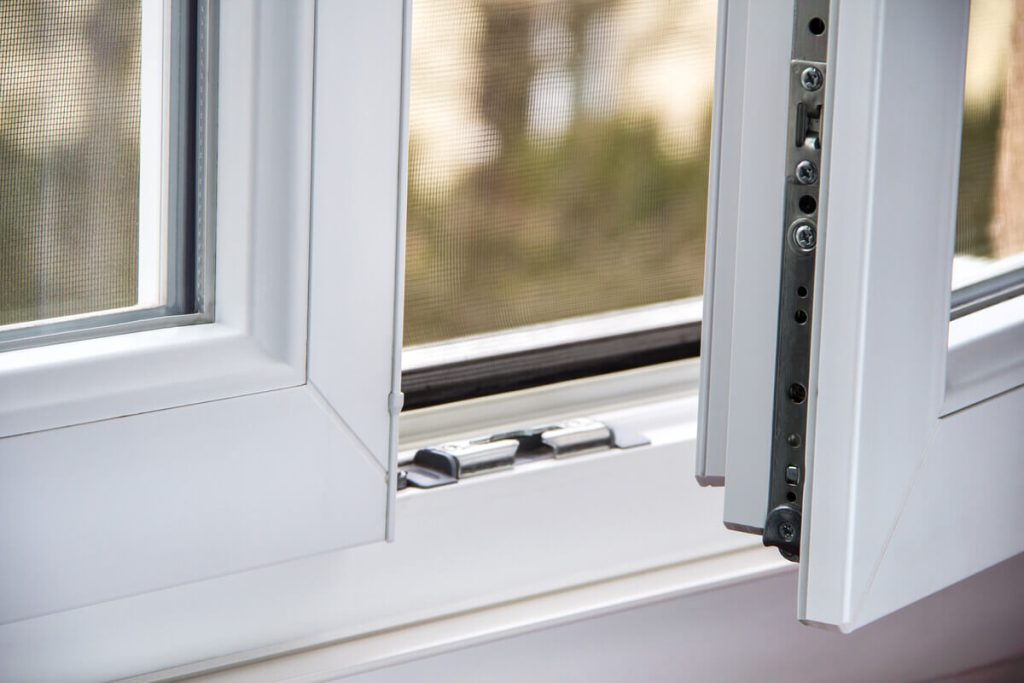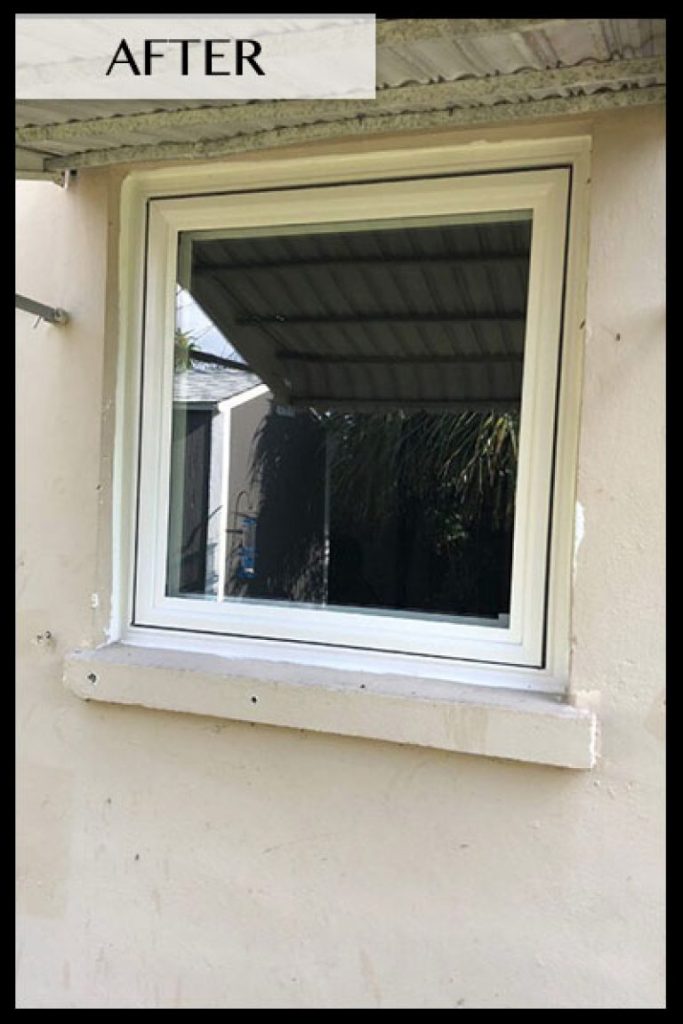Have you ever wondered how long a house window will last before it needs to be replaced? Well, we’ve got the answer for you. In this article, we will explore the lifespan of a house window and discuss factors that can affect its longevity. From the materials used to the maintenance required, there are several factors that determine how long your window will last. So if you’re curious about the lifespan of your house window, keep reading to find out more.
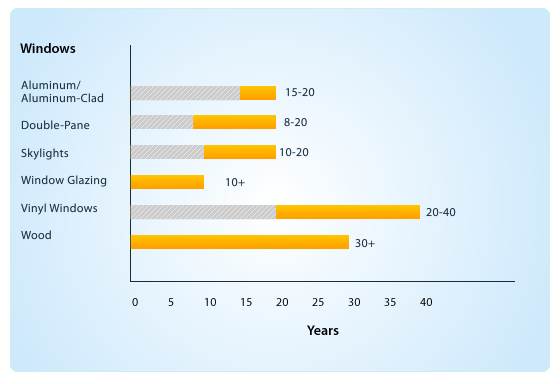
This image is property of www.improvementcenter.com.
Factors Affecting Lifespan of House Windows
Quality of Materials
The quality of materials used in the construction of house windows is a significant factor that can affect their lifespan. Windows made from high-quality materials are more likely to withstand the test of time and last longer. It’s essential to invest in windows made from durable materials such as wood, vinyl, aluminum, fiberglass, or composite materials. These materials are known for their longevity and resistance to damage.
Installation Process
The installation process plays a crucial role in determining the lifespan of house windows. Improper installation can lead to various problems such as air leakage, water intrusion, and structural damage. It is essential to hire a professional window installer who has the necessary skills and experience to ensure that the windows are installed correctly. Proper installation is vital to prevent premature wear and tear and to maximize the lifespan of house windows.
Exposure to Elements
The exposure of house windows to the elements has a significant impact on their lifespan. Windows that are continuously exposed to harsh weather conditions such as heavy rain, strong winds, extreme heat, or freezing temperatures are more susceptible to damage. Over time, exposure to these elements can lead to warping, cracking, fading, or deterioration of the window materials. It’s crucial to consider the location and climate when choosing windows and take measures to protect them from excessive exposure.
Maintenance and Cleaning
Regular maintenance and cleaning are essential for extending the lifespan of house windows. Dust, dirt, and debris can accumulate on windows, affecting their appearance and functionality. It is recommended to clean the windows at least twice a year using a mild detergent and a soft cloth or sponge. In addition to cleaning, it’s essential to inspect the windows for any signs of damage or wear and tear and address them promptly to prevent further deterioration.
Frequency of Use
The frequency of use can also impact the lifespan of house windows. Windows that are opened and closed frequently are subjected to more stress and wear compared to those that are rarely operated. Continuous use can strain the window components and lead to issues such as loose hardware, worn-out seals, or damaged hinges. It’s crucial to handle windows with care and avoid excessive force when operating them to prolong their lifespan.
Location and Climate
The location and climate of a property can significantly affect the lifespan of house windows. Properties located in coastal areas, for example, are exposed to higher levels of salt and moisture, which can corrode window frames and hardware. Similarly, properties in areas with extreme temperatures or frequent severe weather conditions may require windows with better insulation and weather resistance. It’s important to choose windows that are suitable for the specific location and climate to ensure longevity.
Type and Style of Window
The type and style of windows in a house can also influence their lifespan. Different types of windows have varying levels of durability and resistance to wear and tear. For example, wood windows are generally known for their aesthetic appeal but require regular maintenance to prevent rot and decay. Vinyl windows, on the other hand, are low-maintenance and can withstand various weather conditions. It’s important to choose windows that align with both the desired aesthetic and expected lifespan.
Quality of Window Frame
The quality of the window frame is a critical factor in determining the lifespan of house windows. The frame provides the structural support required for the window to function correctly and withstand external forces. Windows with high-quality frames made from durable materials such as solid wood, vinyl, or fiberglass are likely to have a longer lifespan. Additionally, proper sealing and insulation of the frame can contribute to increased energy efficiency and protection against moisture and drafts.
Insect Damage
Insect damage can significantly impact the lifespan of house windows, especially for wood or composite windows. Termites, carpenter ants, and other wood-boring insects can cause severe damage to the window frames, compromising their structural integrity. Regular inspections for signs of insect infestation, such as small holes, sawdust, or softwood, are essential to address the problem promptly and prevent further damage. Treating the window frames with appropriate insecticides can also help protect against insect damage.
Accidental Damage
Accidental damage, such as impacts from flying objects, vandalism, or accidents, can shorten the lifespan of house windows. These unexpected events can cause cracks, chips, or shattered glass, compromising the integrity of the windows. While it may not be possible to prevent all accidents, taking precautions such as installing protective screens or shutters can help minimize the risk of accidental damage. It’s important to repair or replace damaged windows as soon as possible to maintain the functionality and security of the house.
Average Lifespan of Different Types of House Windows
Wood Windows
Wood windows, when properly maintained and protected, can have a lifespan of 30 to 50 years or more. However, they require regular maintenance, including repainting, resealing, and protecting against moisture to prevent rot and decay. If not adequately cared for, wood windows can deteriorate earlier and may require more frequent repairs or replacements.
Vinyl Windows
Vinyl windows are known for their durability and low maintenance requirements. With proper care, vinyl windows can last 20 to 40 years. They are resistant to moisture, decay, and insect damage, making them an excellent choice for homeowners looking for longevity and ease of maintenance.
Aluminum Windows
Aluminum windows are lightweight, strong, and resistant to corrosion. They can last 20 to 30 years or more with regular maintenance. However, aluminum windows are not as energy-efficient as other window materials and may require additional insulation to improve their performance.
Fiberglass Windows
Fiberglass windows have a lifespan similar to that of vinyl windows, ranging from 20 to 40 years. They are highly durable, resistant to warping, and have excellent insulation properties. Fiberglass windows require minimal maintenance and are a popular choice for those seeking longevity and energy efficiency.
Composite Windows
Composite windows, made from a combination of materials such as wood fibers and resins, offer a balance of durability and aesthetics. They can last 30 to 50 years or more, depending on the specific composition and quality. Composite windows require minimal maintenance and are resistant to rot, decay, and insect damage.
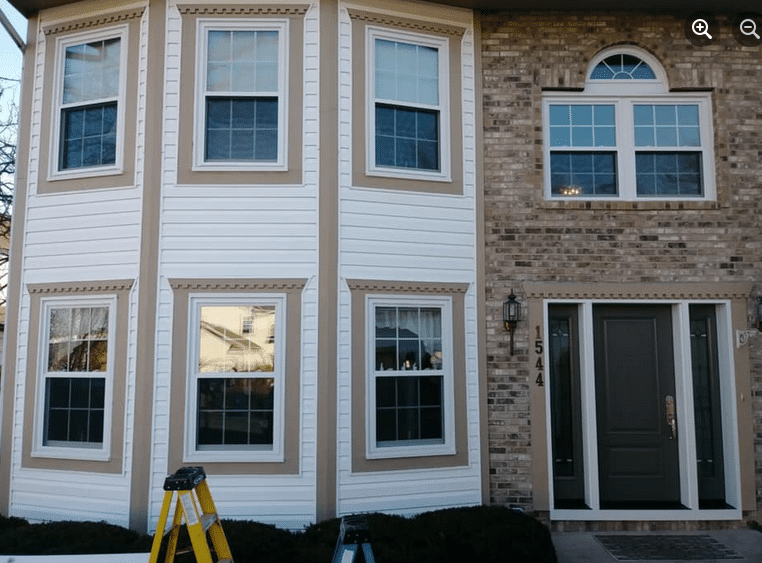
This image is property of broadviewwindows.com.
Signs That Indicate Window Replacement
Visible Damage
Visible damage to windows, such as cracks, chips, warping, or decay, is a clear sign that replacement is necessary. These damages not only affect the appearance of the windows but can also compromise their functionality and energy efficiency. Prompt replacement of windows with visible damage is crucial to maintain the overall integrity and security of the house.
Drafts and Air Leaks
Drafty windows that allow cold air to enter the house or hot air to escape are indicators of the need for replacement. Air leaks can significantly affect the energy efficiency of a home, leading to higher heating and cooling costs. Additionally, drafty windows can create discomfort, making it challenging to maintain a consistent indoor temperature. Replacement windows with proper insulation and sealing can help eliminate drafts and improve energy efficiency.
Difficulty in Operation
Windows that are difficult to open, close, or operate indicate potential issues with the hardware, hinges, or frames. Over time, wear and tear can affect the functionality of windows, making them less efficient and secure. If regular maintenance or repairs do not improve the operation of windows, it may be time to consider replacement.
Poor Energy Efficiency
Older windows, especially those with single-pane glass, may lack sufficient insulation and energy efficiency. If you notice a significant increase in your energy bills or fluctuating indoor temperatures, it could be a sign that your windows are no longer providing adequate insulation. Upgrading to energy-efficient replacement windows can help reduce heating and cooling costs and improve overall comfort.
Condensation
Excessive condensation on windows, particularly between the glass panes, is a sign of seal failure. When the seals around the glass panels deteriorate, moisture can penetrate the window, leading to condensation and reduced visibility. Condensation issues indicate that the window’s insulation is compromised, and replacement may be necessary to prevent further moisture damage.
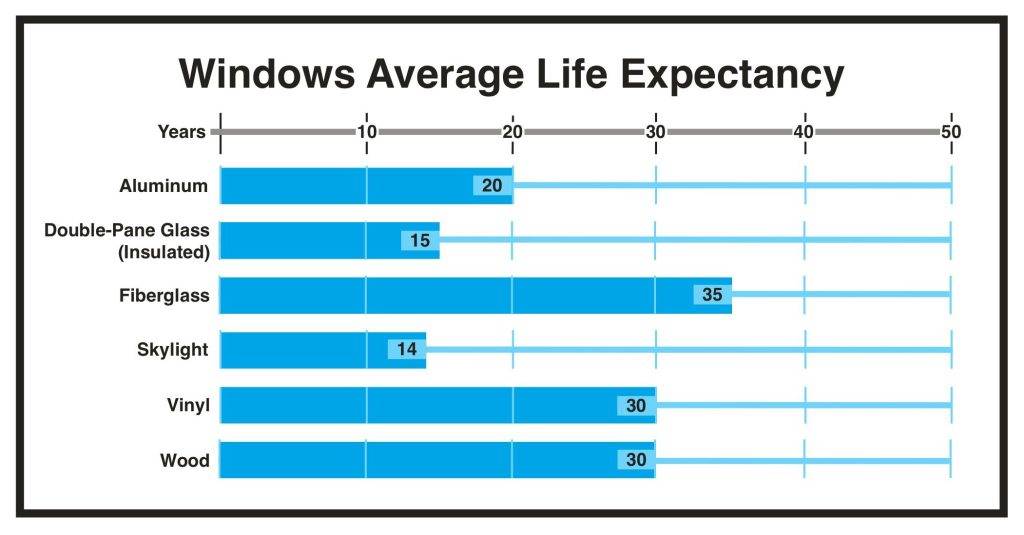
This image is property of www.howtolookatahouse.com.
Ways to Extend the Lifespan of House Windows
Regular Maintenance and Cleaning
Regular maintenance and cleaning are essential for preserving the lifespan of house windows. This includes cleaning the glass, frames, and hardware, as well as inspecting for any signs of damage or wear. Regular maintenance helps prevent the accumulation of dirt and debris, which can affect the appearance and functionality of the windows. Additionally, addressing minor issues promptly can prevent further damage and extend the lifespan of the windows.
Repairing Minor Damage Promptly
If you notice any minor damage to your windows, such as small cracks, chips, or loose hardware, it’s important to address them promptly. Ignoring or delaying repairs can lead to more significant damage and potentially compromise the integrity of the window. By repairing minor damages as soon as they are detected, you can prevent further deterioration and extend the lifespan of the windows.
Weather Stripping and Insulation
Proper weather stripping and insulation can significantly improve the energy efficiency and lifespan of house windows. Weather stripping helps seal any gaps or cracks around the window frames, preventing drafts and air leaks. Similarly, adding insulation to the window frames can enhance their thermal performance and reduce energy loss. By investing in quality weather stripping and insulation, you can increase the lifespan of your windows and improve your home’s comfort and energy efficiency.
Using Window Coverings and Films
Window coverings such as curtains, blinds, or shades can provide an additional layer of protection for your windows. They can help block direct sunlight, reduce heat transfer, and protect the glass from potential damage. Additionally, applying window films can help improve the windows’ insulation properties, filter harmful UV rays, and reduce fading of interior furnishings. Using window coverings and films can enhance the lifespan of your windows and contribute to a more comfortable living environment.
Reapplying Paint or Sealant on Frames
For windows with wooden frames, regular maintenance should include repainting and resealing. This helps protect the wood from moisture, rot, and decay, prolonging the lifespan of the windows. Repainting the frames not only refreshes the appearance but also provides an additional layer of protection against the elements. Regularly inspect the frames for any signs of peeling paint or worn-out sealant and take the necessary steps to reapply as needed.
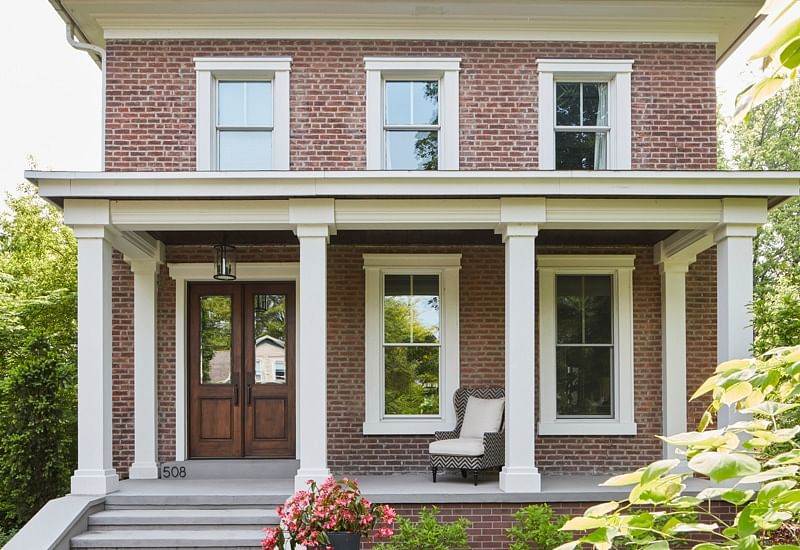
This image is property of pellabranch-prod.gumlet.io.
Finding the Right Replacement Windows
Consider Desired Characteristics
When looking for replacement windows, it’s essential to consider the desired characteristics that align with your specific needs. This includes factors such as aesthetics, energy efficiency, noise reduction, security features, and ease of maintenance. Identify what aspects are most important to you and prioritize them when selecting the right replacement windows for your home.
Energy Efficiency Ratings
Energy efficiency is a crucial aspect to consider when choosing replacement windows. Look for windows that are ENERGY STAR certified, as they meet the specific energy efficiency standards set by the Environmental Protection Agency (EPA). These windows are designed to reduce heat transfer, lower energy consumption, and improve the overall comfort of your home. Pay attention to features such as low-emissivity (low-E) coatings, multiple glass panes, and gas fills for enhanced energy efficiency.
Warranty and Service
A reputable window manufacturer will offer a warranty on their products. Pay close attention to the warranty details, including the length of coverage and what it specifically includes. Look for manufacturers with a track record of providing reliable customer service and support. A comprehensive warranty can provide peace of mind and protect your investment in replacement windows.
Professional Installation
While some homeowners may attempt to install replacement windows themselves, it is often best to hire a professional window installer. Professional installation ensures that the windows are properly fitted, sealed, and aligned for optimal performance. It minimizes the risk of installation errors that could compromise the lifespan and functionality of the windows. A professional installer will have the necessary tools, skills, and experience to complete the job efficiently and effectively.
Comparing Quotes
When considering different replacement window options, it’s advisable to obtain multiple quotes from reputable window suppliers and installers. Comparing quotes will give you a better understanding of the overall cost, including the price of materials, installation, and any additional services. Take into account the quality of the products, the reputation of the manufacturers and installers, and the level of customer support when making your decision.
Choosing the Right Contractor
Selecting the right contractor for your replacement window project is crucial. Look for licensed and insured contractors with a good reputation and experience in installing windows. It’s important to review their portfolio, read customer reviews, and speak to references if possible. A reputable contractor should be able to provide guidance on the best window options for your home, offer competitive pricing, and deliver quality workmanship.
In summary, the lifespan of a house window is influenced by various factors, including the quality of materials, installation process, exposure to elements, maintenance and cleaning, frequency of use, location and climate, type and style of window, quality of the window frame, insect damage, and accidental damage. Different types of house windows, such as wood, vinyl, aluminum, fiberglass, and composite windows, have varying average lifespans. Signs that indicate the need for window replacement include visible damage, drafts and air leaks, difficulty in operation, poor energy efficiency, and condensation. To extend the lifespan of house windows, regular maintenance and cleaning, repairing minor damage promptly, weather stripping and insulation, using window coverings and films, and reapplying paint or sealant on frames are recommended. When choosing replacement windows, factors to consider include desired characteristics, energy efficiency ratings, warranty and service, professional installation, comparing quotes, and choosing the right contractor. By taking these factors into account, homeowners can ensure they make informed decisions and maximize the lifespan of their house windows.
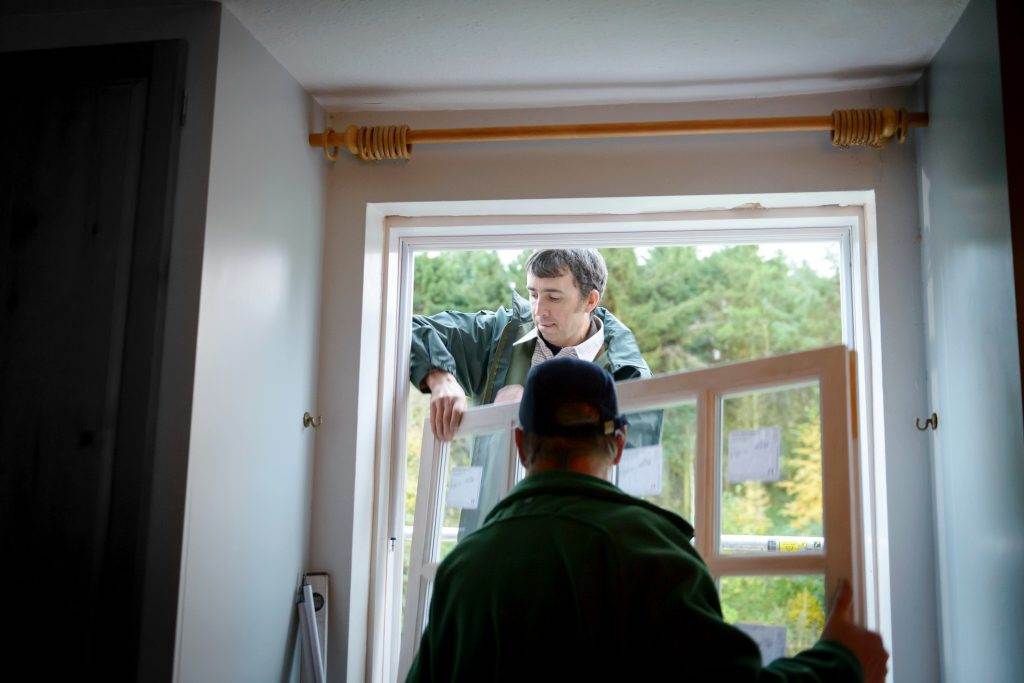
This image is property of cdn.mos.cms.futurecdn.net.

